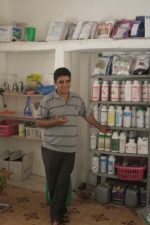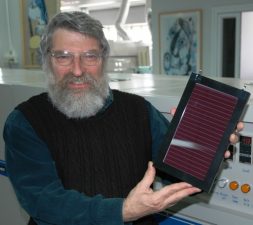
A high use of hormones for IVF treatments may be one reason why Jewish Israelis in special risk category.
The Israeli Health Ministry stated that 1 in every 8 Israeli women is at risk of breast cancer. The disease is on the rise in Jewish Israeli women, but mortality rates are dropping, according to the Israel Health Ministry. The contradiction is resolved when it’s understood that early detection and greater numbers of women being screened reveal new cases earlier than in previous years, which in turn allows prompt treatment and better chances of recovery. And if natural cancer prevention with herbs sounds unlikely, read our post about turmeric’s amazing anti-cancer properties and another about a folkloric Pakistani herbal tea that’s come under scientific scrutiny.
According to the Israel Cancer Association, about 90 percent of patients can be cured if the disease is detected at an early stage. Breast cancer age-standardized mortality rates dropped from 22.6% in 1998 to 17.4% in 2009- an impressive 30% decrease.
Mammography is the recommended method for early detection in Israel, and is paid for by the state health services. Women between 50 and 74 are urged to have a mammogram every two years, while those over 40 with breast cancer in the family history may have one yearly. Women who have the BRCA1 and BRCA2 genetic mutation, usually found in Jewish Ashkenazic women, are given MRI tests.
Current statistics (2008-2009) show that Israeli Arab women’s risk has dropped to one in 14, an improvement over the previous study covering 2007-2008, where the risk was one in 13. The mortality figures among Arab women also fell for the first time in 2009. Rennert explains:
“We are investing great efforts in encouraging Arab women’s to come for examinations. For example, we organized transportation from villages to a clinic, for mammograms . We also employ a mobile mammography unit in Arab communities.”
According to the World Health Organization’s International Agency for Research on Cancer, breast cancer rates in Israel are the fifth highest in the Western world.
WHO figures on international breast cancer rates per 1000 women in populations:
Belgium: 109.2
Denmark: 101.1
France: 99.7
Holland: 98.5
Israel: 97.8
Germany: 81.6
Sweden 79.4
USA: 76
Israel has one of the highest rates in the world for hormonal fertility treatments, which raise the risk factor. Other factors include hormone-replacement treatments for menopausal women. Dr. Gad Rennert, director of the national breast cancer screening program, remarks:
“Breast cancer is a disease of the Western world and the increase is a sign of westernization – in other words, lower birth rates and postponing the age of pregnancy.”
Senior La Leche League lactation counselor and former writer for Green Prophet Hannah Katsman adds,
“Studies show that breastfeeding lowers breast cancer risk.”
Quoting from “Breast Feeding and Human Lactation” (Jan Riordan and Karen Wambach), Katsman told us that “Breastfeeding is one of the few modifiable factors that helps to prevent breast cancer. According to Riordan and Wambach, if women in developed countries that have 2.5 children average breastfed them 6 months longer than the current norm, 5% of breast cancer could be prevented.”
Something for new mothers to consider when choosing between bottle and breast.
Maintaining normal weight, regular exercise, and eating lots of anti-oxidant vegetables every day are standard recommendations for cancer prevention. But don’t ignore them just because you’ve read it all before. And if you’re a woman over 40, find time in your calendar for your next checkup and mammogram.
Environmental factors that increase risk of cancer:
- A Plastic Pollution Cocktail
- Asbestos Exposure Raises Cancer Rates in Lebanon
- Fast Food Increases Colon Cancer in Cairo
Image of breast cancer patient from Shutterstock



